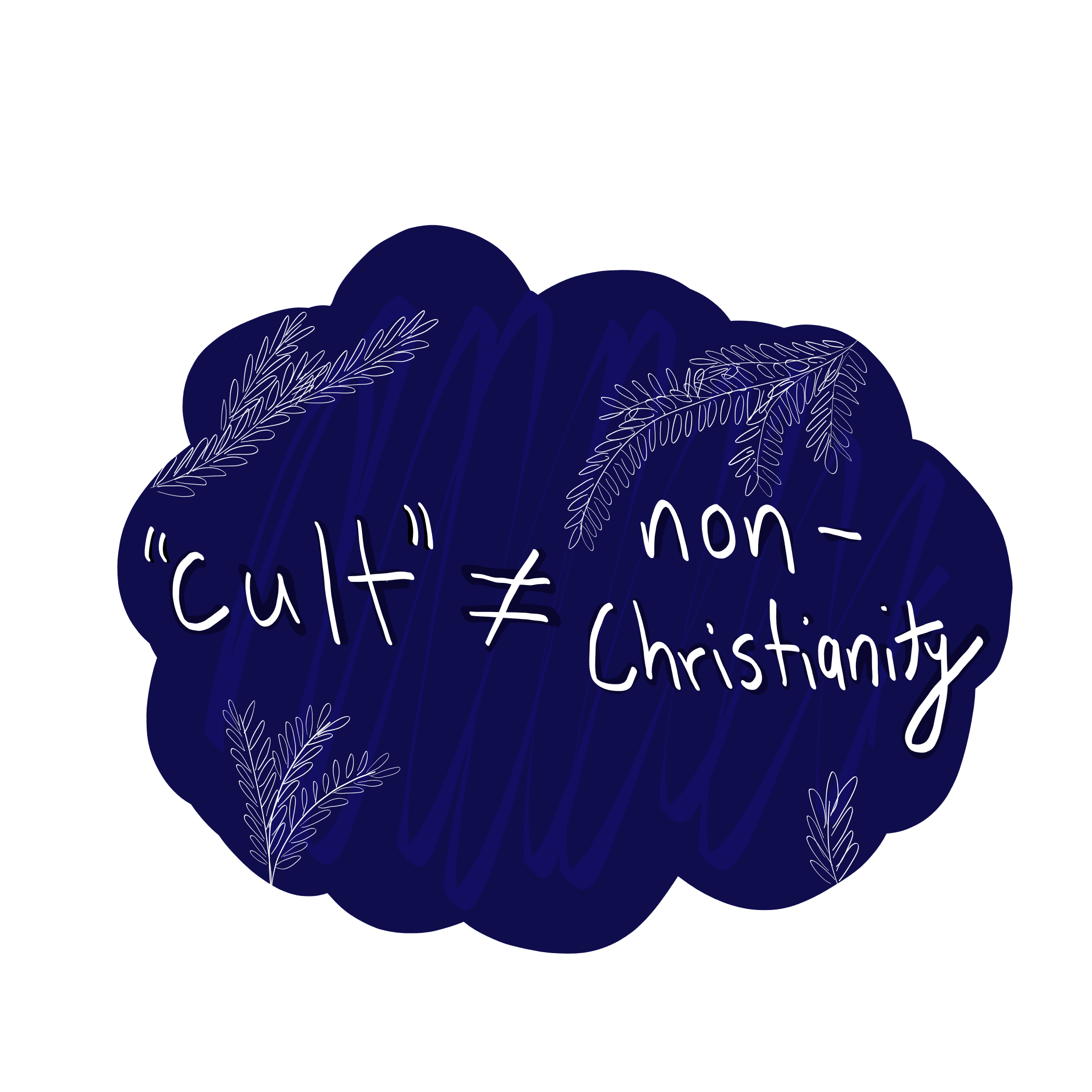
Content Warning: This article contains discussion of sexual misconduct.
I think almost all Lewis & Clark students would agree that Christianity is not a supreme religion. But as soon as discussions around “cults” come up, established Christianity — Catholicism, Protestantism, non-denominationalism, etc. — becomes the sounding board for what is “normal.” We should not call small religious groups cults because it perpetuates the harm that (particularly evangelical) conservative Christianity causes.
In multiple conversations, class discussions and presentations, I see students discuss “cults.” All agree that they are “bad” and “dangerous” in one way or another. However, most students do not reflect on the language they use to describe these groups and how it can perpetuate harm against non-Christians or “deviant” Christians.
I have a research interest in the Branch Davidians at Waco, Texas, which a fire of unknown cause nearly destroyed in April 1993. I have lesser interests in the Peoples Temple (Jonestown) and the Children of God, among others. These three are widely considered to be “cults,” but I believe that this term is vague and undescriptive, not to mention that it is used despite its hate-filled legacy.
Before continuing, in no way am I apologizing for the horrible actions for which these religious groups are responsible. I do not like the mass murder-suicide at Jonestown of a predominantly Black religious group any more than you do. However, I am genuinely interested in the lives and theologies of these people, not just their leaders. Yes, David Koresh, the Branch Davidians’ leader, died in the 1993 fire (which some believe was deserved), but so did 25 innocent children whose names are forgotten.
Some believe that despite the negative connotation toward “cults,” the fact that some “cults” did abhorrent things justifies its use. David Koresh, Jim Jones (leader of Jonestown) and David Berg (leader of Children of God) did bad things, and so did their followers in many cases. But what exactly makes those behaviors “cultish”? And what connects these religious groups to others?
Koresh and Berg molested children. Jones ordered the killing and suicide of almost a thousand people. Other groups like the Rajneesh movement in Oregon deliberately poisoned hundreds of people’s food in the 1980s. But why are these varied wrongdoings grouped together under the term “cult” when larger groups — I am primarily thinking of Christianity — are not labeled as such?
Koresh molested young girls because he believed he was the Lamb of God in the Christian tradition. Berg believed in the Law of Love, which entailed having sex with anyone you wished — for him that included children. Jones ordered the deaths of approximately 900 people as part of his “White Night” programs to curtail encroachment from U.S. intelligence agencies.
Though horrible, these actions do not have a theological root cause that is unique to “cults.” Nothing connects these groups together other than the “deviant” Christian tradition — of which all are a part (except the Rajneesh movement, which derived from various Indian religions). But who decides what is “deviant” Christianity?
The negative connotation behind “cults” and “deviant” Christianity resulted from the anti-cult movement in the late 20th century. This movement primarily included evangelical Christian conservatives who feared “New Age” religions — some of which came to the United States through immigration. In other words, xenophobic fears of non-Christian religions informed anti-cult activists and later the general public. Soon this spread to anything that was not “normal” to the white, well-off Christians.
Do not normalize evangelical Christianity by dehumanizing “deviant” religious groups. Condemn small religious groups for their actions, but do not continue the hateful legacy of anti-cultism.
This article presents opinions held by the author, not those of The Pioneer Log, its editorial board or those interviewed for background information.
Subscribe to the Mossy Log Newsletter
Stay up to date with the goings-on at Lewis & Clark! Get the top stories or your favorite section delivered to your inbox whenever we release a new issue.

Leave a Reply